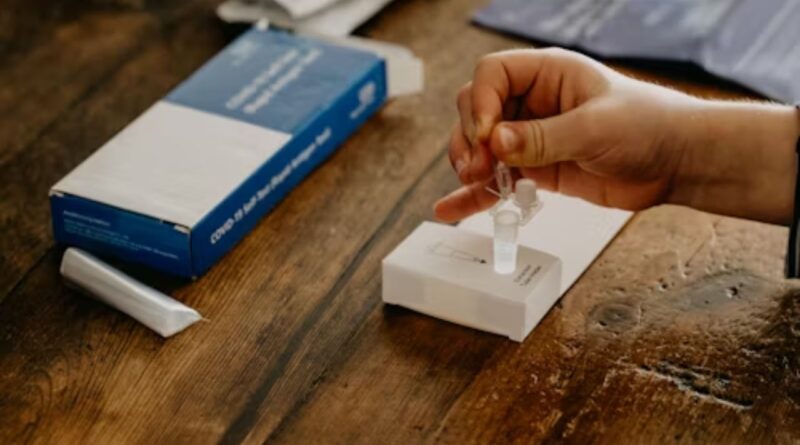Early Signs of Menopause When to Consider a Home Test Kit
A part of every woman’s life that embarks on the end of women’s menstrual cycles and fertility. It usually occurs in women in their early 40s and 50s, but the transition can begin several years earlier.
That period is called premenopause, which brings various symptoms that can affect a woman’s life. Knowing the early signs of menopause and when to consider using a menopause home test kit can help every woman go through this phase more smoothly.
These kits offer a convenient way to check for menopause and offer peace of mind in the comfort of your home. If you’re wondering about the early signs of menopause, continue reading to learn more.
Early Signs of Menopause
The early signs of menopause vary from woman to woman, but some common symptoms include:
- Irregular Periods: One of the most noticeable signs of approaching menopause is changes in the menstrual cycle. Periods may become less regular, lighter, or heavier than usual.
- Hot Flushes: Many women experience sudden heat, often accompanied by sweating and a red, flushed face. These hot flushes can occur during the day or night.
- Night Sweats: Similar to hot flashes, night sweats are intense hot flashes that happen during sleep, often causing significant discomfort and disrupting sleep.
- Mood Changes: Hormonal fluctuations can lead to mood swings, irritability, anxiety, and even depression.
- Sleep Problems: Insomnia and other sleep disturbances are common during perimenopause, often exacerbated by night sweats.
- Vaginal Dryness: Reduced estrogen levels can cause vaginal dryness, leading to discomfort during intercourse and daily activities.
- Decreased Libido: Many women notice a reduction in sexual desire during perimenopause.
- Weight Gain and Slowed Metabolism: Hormonal changes can affect metabolism, leading to weight gain, particularly around the abdomen.
- Thinning Hair and Dry Skin: Changes in hormone levels can also affect hair and skin, causing thinning hair and dry, itchy skin.
When to Consider a Home Test Kit
Given the wide range of symptoms and their impact on daily life, many women seek confirmation that they are entering menopause. A menopause home test kit can be a convenient and private way to gain this insight. Here’s when you might consider using one:
- Experiencing Multiple Symptoms: If you notice several of the above symptoms co-occurring, a home test kit can help confirm whether they are related to menopause.
- Irregular Periods: A home test can provide clarity if your periods have become irregular and you suspect perimenopause.
- Persistent Symptoms: If menopause symptoms persist over several months and affect your quality of life, a home test can offer a preliminary assessment before consulting a healthcare professional.
- Seeking Confirmation: If you prefer to have an initial confirmation of menopause before seeking medical advice, a home test kit can be an excellent first step.
How Menopause Home Test Kits Work
Menopause home test kits are designed to detect the presence of follicle-stimulating hormone (FSH) in urine. FSH levels increase as a woman approaches menopause. Here’s how these kits typically work:
- Sample Collection: Collect a urine sample, usually the first urine of the day, which tends to have the highest concentration of hormones.
- Testing: Follow the instructions to apply the urine sample to the test device.
- Results Interpretation: After a specified waiting period, the test will indicate whether your FSH levels are elevated, suggesting menopause or perimenopause.
Benefits of Using a Home Test Kit
- Convenience: Home test kits can be used in the comfort of your home, eliminating the need for a doctor’s visit for initial testing.
- Privacy: These kits allow for private testing, which can be particularly appealing for those who prefer discretion.
- Quick Results: Home test kits provide results quickly, often within minutes, allowing immediate insights.
- Cost-Effective: They are generally more affordable than lab tests, making them accessible for many women.
Next Steps After a Positive Test
If a menopause home test kit indicates elevated FSH levels, suggesting you are in perimenopause or menopause, consider the following steps:
- Consult a Healthcare Professional: While home tests are an excellent initial step, following up with a healthcare provider for a comprehensive evaluation and discussion of your symptoms is essential.
- Lifestyle Adjustments: Based on your symptoms, your healthcare provider may recommend lifestyle changes, such as diet, exercise, and stress management techniques, to help manage symptoms.
- Medical Treatments: For more severe symptoms, treatments like hormone replacement therapy (HRT) or other medications may be prescribed.
- Support and Education: Seek support from menopause support groups or educational resources to better understand and manage this transition.
Conclusion
Menopause is a significant life transition that can bring various physical and emotional changes. Recognizing the early signs and considering the use of a menopause home test kit can provide valuable insights and help women take proactive steps in managing their health. By confirming menopause through a home test, women can seek appropriate medical advice and support, leading to a more balanced and productive life during this phase. Embrace the tools available and navigate menopause with confidence and clarity.

